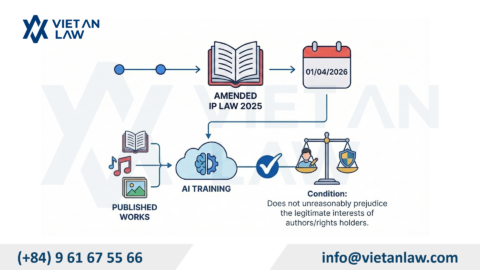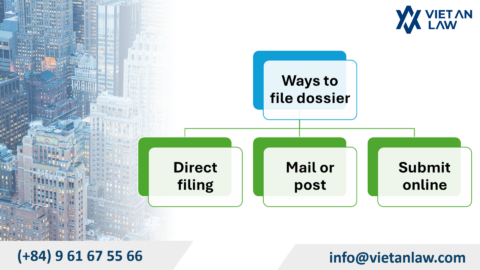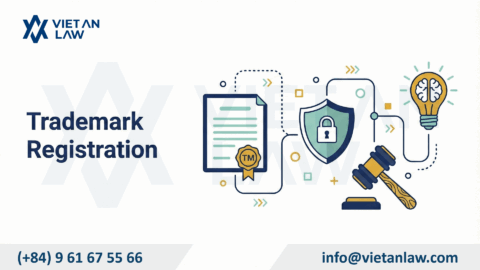A guide to trademark registration in Micronesia is requirement for business to set up there. Micronesia has an important geographical position on the world map, located on the main maritime and air routes connecting Asia with North America. This location offers enormous potential for trade, tourism and logistics development. Micronesia is blessed with abundant natural resources including marine and mineral resources. Micronesia possesses a rich and diverse seafood resource, which is the basis for the development of the fishing industry. Some islands in Micronesia have potential mineral reserves such as manganese ore, copper, phosphorus, etc. With its pristine beaches, clear blue waters, and diverse ecosystems, Micronesia attracts visitors from all over the world. The Micronesian Government promulgates many preferential policies, tax exemptions and investment support to attract foreign businesses to invest, contributing to promoting economic development. In addition, Micronesia actively participates in international and regional organizations, creating favorable conditions for economic cooperation, trade exchanges and attracting foreign investment. However, many businesses still do not know how to register a trademark in Micronesia, Viet An Law would like to guide customers through the article below.
Table of contents
Micronesia does not currently have an official trademark registration system. This leads to a number of challenges for businesses in protecting brands and combating infringement. Here are some reasons why there is no formal trademark registration system in Micronesia
Limited Economic Activity: Micronesia’s economy is relatively small and underdeveloped, focused on traditional industries such as agriculture and fishing. As a result, the demand for official trademark protection is lower than in more industrialized nations.
Resource constraints: The establishment and maintenance of a trademark registration system requires significant resources, including dedicated personnel, infrastructure, and finance. Micronesia’s limited government resources are primarily devoted to essential services such as education, healthcare, and infrastructure development.
Cultural factors: In Micronesia, community and resource sharing are valued. The concept of individual ownership of intangible assets such as trademarks may not be consistent with traditional cultural values.
Focus on regional cooperation: Micronesia actively participates in regional initiatives aimed at harmonizing intellectual property laws and practices in the Pacific region. This approach could lead to a more efficient and integrated trademark registration system in the future.
One measure is to publish a “warning notice” in a local newspaper. This serves as a public statement of the ownership and use of the business’s trademark. Another measure is to maintain a strong brand presence through consistent use and marketing. This can help establish consumer awareness of your business’s brand. Finally, businesses can collect and retain evidence of the use of their trademarks, such as packaging, invoices, and marketing materials. This evidence can be useful in the event of any dispute over the trademark ownership of the business.
Building a strong presence for your brand through consistent use and marketing can help establish consumer awareness and recognition of your ownership.
Micronesia does not have its own national trademark registration system. However, the applicant can still register an international trademark through the Madrid Agreement, which allows the applicant to extend the protection to Micronesia if the country becomes a member in the future. Here’s how:
Eligibility: The applicant must be a citizen or resident of a member state of the Madrid Agreement or the World Intellectual Property Organization (WIPO). Micronesia is not currently a member of both, but applicants may still apply internationally based on the applicant’s nationality or residence in another eligible country.
Process:
File a national trademark application: First, file an application to register the trademark in your country of residence or other qualifying country. After the applicant’s trademark is registered nationally, the applicant can proceed to international registration.
Designate Micronesia: When applying internationally through the Madrid Agreement, the applicant may designate Micronesia as one of the host countries wishing to extend protection. However, be aware that the protection will only come into effect in Micronesia if the country accedes to the Madrid Agreement and the applicant’s designation is accepted.
Fees: The applicant needs to pay the fees associated with filing an international trademark application, including the basic fee, designation fee, and any additional fees for translation or other requirements.
Although there is no formal system, Micronesia recognizes the importance of protecting intellectual property for businesses and individuals. The country has enacted a legal system addressing intellectual property rights and is working to strengthen this framework. In the meantime, businesses can still use the above protections and international trademark registrations to build brand awareness and prevent infringement in Micronesia.
With Micronesia’s economic development and expansion of international trade, the need for a formal trademark registration system is likely to increase. The government may consider implementing such a system in the future, weighing the benefits against resource requirements and cultural considerations.




